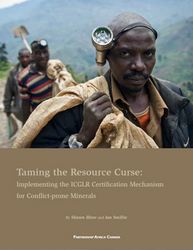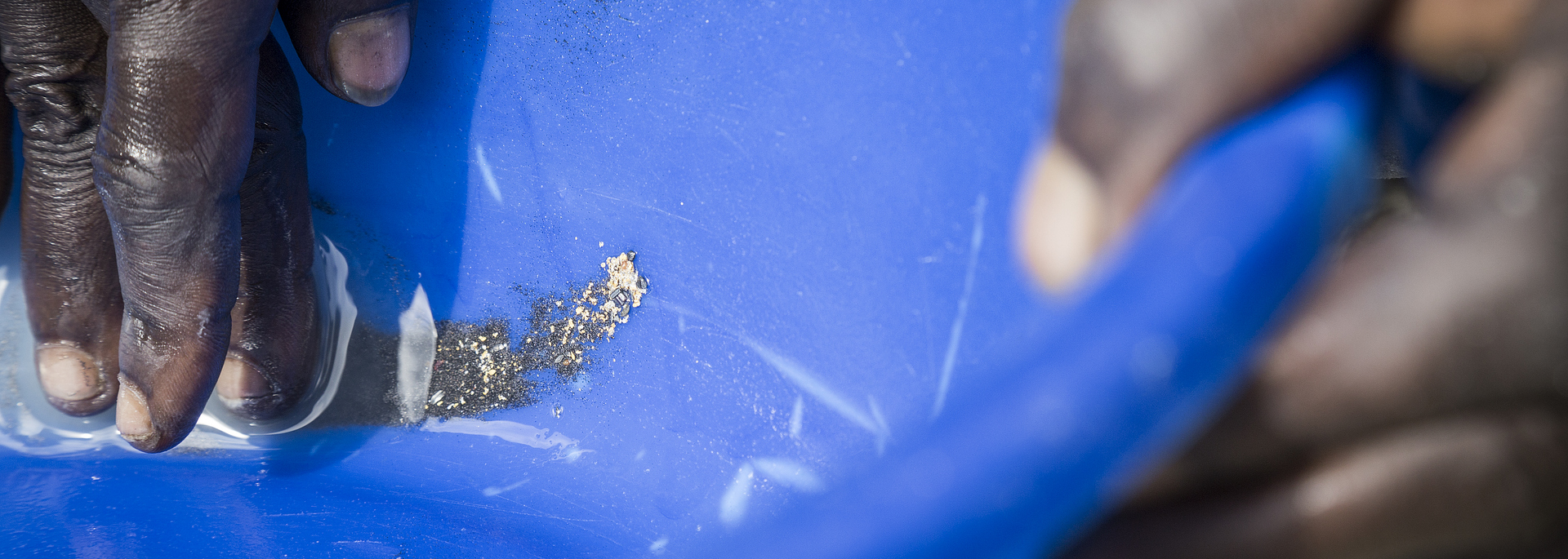
IMPACT in Rwanda
Our work in Rwanda focuses on providing technical guidance to develop new approaches to natural resource management.
Resources
Rwanda’s key natural resources include 3Ts, sapphires, gold, coffee, and agriculture.
We Reveal
Our research in the Great Lakes region investigates the drivers of the illicit trade of conflict-prone minerals and highlights recommendations for ICGLR Member States, including Rwanda. We examine issues such as formalization of the artisanal mining sector, fiscal reform, harmonization of legislation, and strengthening of internal controls to end smuggling. We also provide analysis of certification, traceability, and due diligence as it applies to conflict-prone minerals in the Great Lakes region. In 2011, we published Taming the Resource Curse: Implementing the ICGLR Certification Mechanism for Conflict-prone Minerals that outlined a certification mechanism for 3TG based on best practices. The mechanism was approved by all the Heads of State of the ICGLR, including Rwanda’s President, in December 2010. We’ve also undertaken extensive research in Rwanda examining women’s livelihoods and barriers to women’s empowerment in the artisanal mining sector in the country—and the region.

We Innovate
As part of our work to transform mineral supply chains, we’ve led efforts to support traceability and due diligence, while promoting benefits for Rwanda’s miners and their communities. Since 2005, we’ve worked with the International Conference on the Great Lakes Region (ICGLR) to address the illegal exploitation of conflict-prone minerals—a regional initiative that Rwanda is a member of. As a technical partner to the ICGLR, we are supporting the implementation of the Regional Initiative against the Illegal Exploitation of Natural Resources. We provide technical guidance to Rwanda’s Ministry of Mines on implementing the six tools which include the Regional Certification Mechanism, the Regional Database on Mineral Flows, and formalizing the artisanal mining sector. We’ve advised on the national legislation that brought the Regional Certification Mechanism into law in Rwanda, and supported its implementation. We provide capacity building and sensitization to policymakers from Rwanda, as well as members of its industry, and civil society on their role to ensure that traceability and due diligence are carried out in accordance with national legislation and in alignment with regional and international standards. As part of our efforts we trained mine site inspectors, as well as other officials on customs and export procedures. Through our collaboration with the Great Lakes Region Civil Society Coalition against the Illegal Exploitation of Natural Resources (COSOC-GL), we provide training to our civil society partners in Rwanda for ongoing independent monitoring of traceability and due diligence implementation. As well, we support and spotlight their capacity for producing technical and independent assessments of supply chain integrity. Additionally, we’re providing sensitization across the country at the local, regional, and national levels on the findings of our research and recommendations to improve women’s opportunities in the sector.

We Engage
We advance dialogue with our partners in Rwanda, including policymakers and the private sector to implement traceability and due diligence as well to ensure benefits reach miners and their communities. Through our partnership with COSOC-GL, civil society from Rwanda and the Great Lakes region brings the voices and concerns of artisanal miners to industry and governments. Together, we engage governments to strengthen their internal controls, and encourage the private sector to put in place due diligence for their mineral supply chains.
Recent Highlights
Civil Society Toolkit on Supply Chain Risks
In collaboration with the Great Lakes Region Civil Society Coalition against the Illegal Exploitation of Natural Resources (COSOC-GL), IMPACT has developed a toolkit for civil society to monitor and report on risks in the supply chain.
ICGLR Regional Certification Mechanism Implementation
IMPACT supports the implementation of the International Conference on the Great Lakes Region (ICGLR) Regional Certification Mechanism and Organisation for Economic Co-operation and Development’s (OECD) Due Diligence Guidance. We provide technical support and training so that ICGLR Member States can effectively meet international and regional standards and ensure their minerals are conflict-free.
ICGLR Regional Database on Mineral Flows
IMPACT is supporting the International Conference on the Great Lakes Region (ICGLR) to operationalize the Regional Database on Mineral Flows as part of its efforts to end the illicit trade of conflict-prone minerals.
Women in Artisanal & Small-Scale Mining in Central and East Africa
Women in Artisanal and Small-Scale Mining (ASM) in Central and East Africa is IMPACT’s ground-breaking research project studying the role of women in the artisanal mining sector and opportunities for their empowerment.
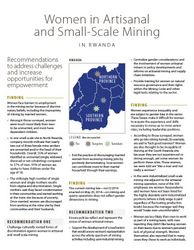
Women in ASM in Rwanda: Recommendations to address challenges
November 2017
This brief highlights key recommendations to address challenges women face in the artisanal mining sector in Rwanda and increase opportunities for their empowerment.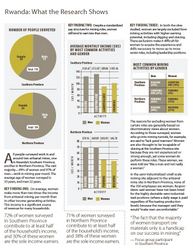
Women in Artisanal and Small Scale Mining: Rwanda
July 2017
This brief highlights key findings of research studying the role of women in the artisanal mining sector. It provides a snapshot of challenges and opportunities for women’s empowerment in artisanal mining in Rwanda.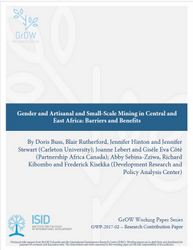
Gender and Artisanal and Small-Scale Mining in Central and East Africa: Barriers and Benefits
July 2017
A working paper produced on key findings of research into women and artisanal mining in the Great Lakes region, by Partnership Africa Canada, Carleton University, and Development Research and Policy Analysis Center for the Growth and Economic Opportunities for Women (GrOW) program.